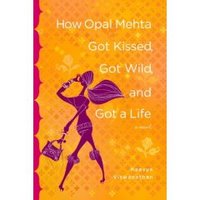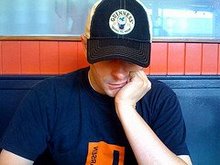 Earlier this year, the author of the book A Million Little Pieces, James Frey, was crucified by the media (particularly by loud-mouthed, right-wing talk radio hosts) when the truth came out that he "embellished" certain facts in the book to make the story interesting. Under normal circumstances, that is not so much of a problem, unless your finished product is categorized as non-fiction. Pieces gained notoreity when the queen of talk show entertainment, Oprah Winfrey, made it a selection of the month for her famous book club.
Earlier this year, the author of the book A Million Little Pieces, James Frey, was crucified by the media (particularly by loud-mouthed, right-wing talk radio hosts) when the truth came out that he "embellished" certain facts in the book to make the story interesting. Under normal circumstances, that is not so much of a problem, unless your finished product is categorized as non-fiction. Pieces gained notoreity when the queen of talk show entertainment, Oprah Winfrey, made it a selection of the month for her famous book club.Speculation about the questionable credibility of Frey's story later surfaced a short time later, spawning a phone call from Oprah herself into Frey's interview on the Larry King show to defend the book, proclaiming that his "story of redemption resonated with her." When Frey fessed up a short time later, the shit hit the fan! Boy, oh boy, it sure did. On January 26th (my birthday), Frey returned to the Oprah show for a public display of ridicule, spearheaded by the duped talk show host herself. The fallout from the incident left a bitter taste in the mouths of many in the literary community, calling into question the integrity of authors.
 Now, three months later, another up and coming fiction writer by the name of Kaavya Viswanathan, a Harvard University student, is in hot water, being accused of plagarism. Her critically-lauded debut novel, How Opal Mehta Got Kissed, Got Wild and Got a Life, has been pulled from stores by her publisher, Little, Brown and Company, when it surfaced that certain passages were plagarized from a series of novels by another author, Megan McCafferty. These passages "unintentionally minicked," nearly word-for-word (as Viswanathan maintains), passages from Megan's novels, Sloppy Firsts and Second Helpings.
Now, three months later, another up and coming fiction writer by the name of Kaavya Viswanathan, a Harvard University student, is in hot water, being accused of plagarism. Her critically-lauded debut novel, How Opal Mehta Got Kissed, Got Wild and Got a Life, has been pulled from stores by her publisher, Little, Brown and Company, when it surfaced that certain passages were plagarized from a series of novels by another author, Megan McCafferty. These passages "unintentionally minicked," nearly word-for-word (as Viswanathan maintains), passages from Megan's novels, Sloppy Firsts and Second Helpings.In light of this new scandal, Frey's "alleged crimes" pale in comparison. While Frey was guilty of misrepresenting embellishments as truth, at least he did not blatantly plagarize another author's work. In reality, I'm curious to know how many non-fiction books actually feature subtle fabrications and other embellishments in the interest of making for original storytelling. Unfortunately, Frey made the mistake of getting caught in the heat of the lies and deceit. In turn, he was demonized and vilified in the media for his misgivings.
His deceit culminated in an intense backlash, resulting in legal action, raised by "duped" readers of the book. Some readings even recommended the book to friends, while psychiatrists and mental health experts encouraged patients to read the book. As a result, consumers sued for fraud in droves, demanding compensation for money spent on the book as well as "wasted time." In my mind, not only is that going overboard, but it's just plain stupid. If "wasted time" becomes the standard for which compensation is based on, then people might as well be able to sue the major TV networks for "wasting viewers' time" for worthless trash on the airwaves (I'd like to sue for the waste that is ALL reality TV). While we're at it, can we also sue radio stations and the major record labels for wasting our time and polluting our bodies with air waves emitted as a result of ALL the shitty music they produce and manufacture for public consumption? (I'd like to sue for being subjected to Britney Spears and Korn, amongst others.) Where would it end? People already believe that us Americans are too much of a litigious society. Allowing the ability to legally pursue compensation using the standard of "wasted time" would only make things worse.
On the other hand, the allegations against Viswanathan have harsher ramifications for the accused. The author misrepresented her writing style as being her own, when in reality, the style mimicks the style of another established author. Maybe the error of judgment on Viswanathan's part could be attributed to youthful ignorance or a lack of literary knowledge, but the truth is, her actions are unconscionable. On the other hand, part of the responsibility for this egregious lapse of judgment should fall on the editor of Opal Mehta. I'd like to believe that the editor should be responsibilty for fact-checking as well as checking for potential plagarism from other source material. (As an aside note, albeit minor, the English student that I'd like to be has recently an increasing number of typos in books that I've read recently. This really surprises me. I've only just begun to notice this problem.)
Am I being too picky? No, I don't think so. As a reader with an interest in English literature, I have a reasonable expectation of accuracy in literature on all levels, spelling or otherwise. I may not be likely to sue a famous author over such errors, but I believe accuracy should be part of the responsibility of a professional, bestselling author. I'm interested to see how this story develops. As mentioned earlier, the book has been pulled from shelves, while legal action is being contemplated. I expect that standards for accuracy in literature may change in the aftermath of this latest literary controversy.

No comments:
Post a Comment